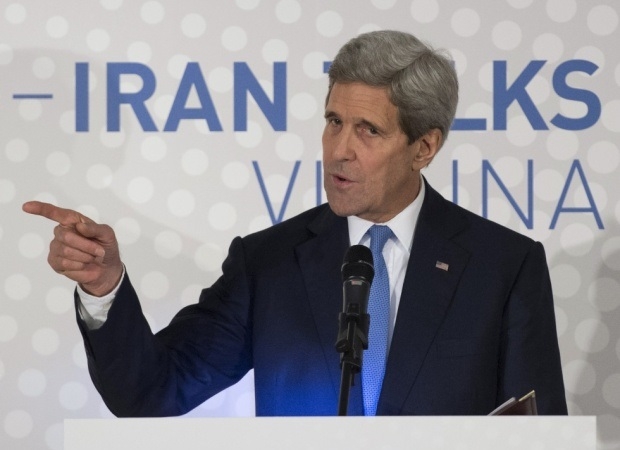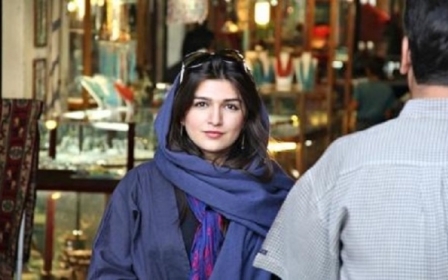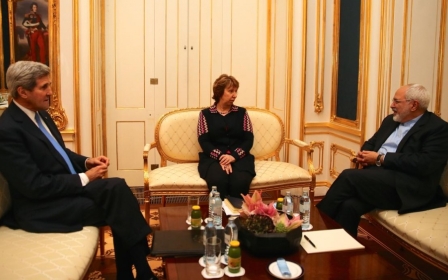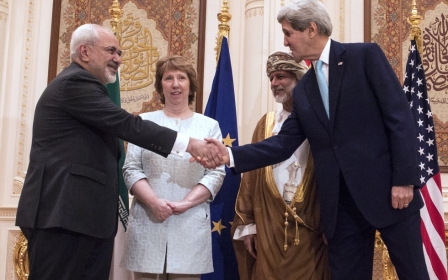Kerry lauds 'substantial' progress as Iran nuclear talks extended to 1 July

Talks over Iran’s nuclear programme were extended on Monday by seven months, with a new deadline of 1 July 2015, after world powers failed to strike a deal during intensive negotiations held in Austrian capital Vienna.
US Secretary of State John Kerry insisted progress had been made in Austria and explained now is “not the time to get up and walk away”.
“We have made real and substantial progress – new ideas have surfaced,” he told reporters. “Today we are closer to a deal that will make the entire world […] safer and more secure.”
Kerry explained negotiators will meet again in December with the aim of striking the outline of a political deal within four months. He said if an agreement isn’t reached within that time “we will revisit how best to proceed.”
The US, Russia, China, Britain, France and Germany – known as the P5+1 – have been locked in talks with Iran since February trying to turn the interim Geneva accord, reached a year ago, into a lasting agreement.
The interim deal included a freeze on elements of Iran’s nuclear programme with Tehran in turn received some relief from internationally imposed economic sanctions. Kerry praised Iran on Monday for upholding this agreement, which he said should allay the fears of sceptics, and called for support from US politicians in continuing negotiations.
“We look for your support [in Congress] for this extension,” he said, raising an issue many have warned could scupper a deal.
A new Republican-controlled Congress will begin work early next year – either in January or February – and analysts have warned a hawkish approach to Iran could mean tougher sanctions being imposed and ruin any potential deal.
Despite the concern, Kerry said he was “hopeful” Congress would not send any messages that could negatively impact on the talks and appeared confident a deal could still be struck in the next round of negotiations.
Analysts, however, said the US Secretary of State was fulfilling the role of a negotiator by appearing confident in Vienna.
“John Kerry has to show some confidence because he’s in the executive branch and it’s part of a negotiation technique to appear confident,” Arron Reza Merat, a freelance Iran analyst for the Economist Intelligence Unit told MEE. “He is aware the Iranians will be looking for cues from their reactions because it’s the Iranians who have the greater excuse for dropping out of negotiations at the moment.”
“The Iranians know Congress is going to hamstring the executive so John Kerry must present confidence to stop the hardliners in Iran from having the chance to present the narrative that the Americans are not serious about the talks, or don’t feel they can do it because Congress will stop them.”
Iranian President Hassan Rouhani reacted to the extension announcement by speaking on state television and explaining he believed a deal will be done by mid-2015.
“This way of negotiation will reach a final agreement,” he said. “Most of the gaps have been removed.”
Sticking points
The issues of centrifuges and sanctions have proved most contentious, with the P5+1 countries wanting a reduction of the former, and Iranians demanding a total removal of the latter.
“I think the Iranians are somewhat open to bringing down the number of centrifuges if real sanctions relief is put on the table," Trita Parsi, analyst and head of the National Iranian-American Council told MEE by phone from Vienna.
The problem, he said, is that none of the largest sanctions, including US sanctions on oil and gas, as well as EU and UN sanctions, have been put on the table in the early phases of the negotiations.
"Which means that all of the actual sanctions relief will come off the back end of the deal and that's not acceptable to the Iranians," Parsi said.
Kerry reiterated this position on Monday, saying: “We will remove sanctions as the agreement is reached with Iran. That’s always been the understanding.”
“We want to terminate the sanctions […] but the world still has serious questions on Iran’s nuclear programme," he added.
Despite the apparent lack of willingness to drop sanctions, US President Barack Obama noted in a televised interview on Sunday that success in the nuclear talks could begin a process of Iran shedding its current international pariah status with much of the world.
"What a deal would do is take a big piece of business off the table and perhaps begin a long process in which the relationship not just between Iran and the US, but the relationship between Iran and the world, and the region, begins to change," Obama said.
Middle East Eye propose une couverture et une analyse indépendantes et incomparables du Moyen-Orient, de l’Afrique du Nord et d’autres régions du monde. Pour en savoir plus sur la reprise de ce contenu et les frais qui s’appliquent, veuillez remplir ce formulaire [en anglais]. Pour en savoir plus sur MEE, cliquez ici [en anglais].




